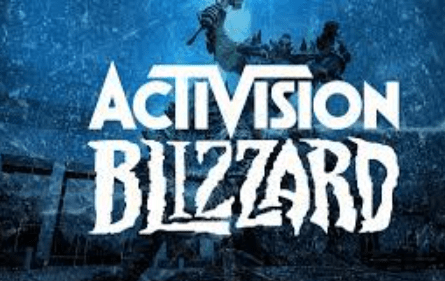
In a world where Candy Crush reigns supreme and Call of Duty Mobile battles for dominance, a mysterious plan called “Project Boston” emerged from the depths of Activision Blizzard King’s headquarters. a quest to break free from Google’s grasp and create a mobile game store of their own. Buckle up, as we journey through the twists and turns of this ambitious undertaking.
READ: Jordan Spieth Predicts the Elimination of PGA Tour’s PIP Bonus
The Dueling Plans: A Tale of Two Strategies
Back in the ancient era of 2019, internal emails spilled the beans on Activision Blizzard’s dual-track plans. Plan A? Forge an alliance with Epic Games and Supercell to birth the “Steam of Mobile,” a utopia for buying mobile games with a mere 10 to 12 percent transaction fee—cheaper than Google’s 30 percent gaming tax.
In a private tête-à-tête with Epic’s big cheese, Tim Sweeney, Activision Blizzard’s CFO pitched the idea with grandeur, envisioning a world where Candy Crush and Diablo Immortal frolic together. And the cherry on top? A sneaky move to conquer the iPhone realm afterward. The end game? Android domination first, with Apple iOS playing catch-up.
The $100 Million Tango with Google: Plan B
But wait, there’s a twist! Simultaneously, Activision Blizzard engaged in a courtship dance with Google, seeking a deal valued at over $100 million. A deal so sweet it covered mobile, YouTube, advertising, media spend, and cloud—a financial feast that would make any company drool.
The grand dilemma? Forge ahead with their dreamy mobile store or succumb to the enchanting allure of Google’s riches. In bold letters, Activision Blizzard declared, “Should we secure real savings with Google, we would deprioritize path 2.” Path 2, the “Build own mobile store,” left in the shadows if Google’s charm prevailed.
The Unborn App Store That Never Was
Had Activision Blizzard taken the road less traveled, their own mobile store would have stealthily launched in 2019 or 2020. A hush-hush project with fewer than 70 people aboard, sailing towards uncharted waters. A minimum viable product featuring Candy Crush would emerge, a mere teaser before the grand unveiling.
Imagine, a store without fanfare, no promotions, just a humble beginning. By 2020, the ship would “ramp” up, acquiring new powers like “multi account support” and “push notifications.” The grand finale? A fully-fledged ABK solution in 2021, showcasing all the company’s mobile games and more.
The Plot Twist: Google’s Gold or the Road Less Traveled?
Alas, fate took an unexpected turn. In January 2020, Activision Blizzard inked a deal with Google worth more than $100 million, and signatures in court confirmed the union. Epic cried foul, alleging that Google bribed Activision Blizzard with a “Project Hug” deal to stifle their own app store ambitions.
In the courtroom, the battle rages on. Did Activision Blizzard genuinely plan to launch the app store, or was it a clever ploy for negotiation leverage? In a plot twist worthy of a soap opera, Activision Blizzard’s CFO claimed it was all just “very early exploratory discussions.” Google’s deal, apparently the Cinderella slipper they were waiting for.
As the dust settles, Activision Blizzard, now under Microsoft’s wing, continues to ponder the mobile app store dream. Who knew the mobile gaming world could be so dramatic? Cheers to “Project Boston,” a tale of ambition, rivalries, and the quest for the ultimate gaming throne.